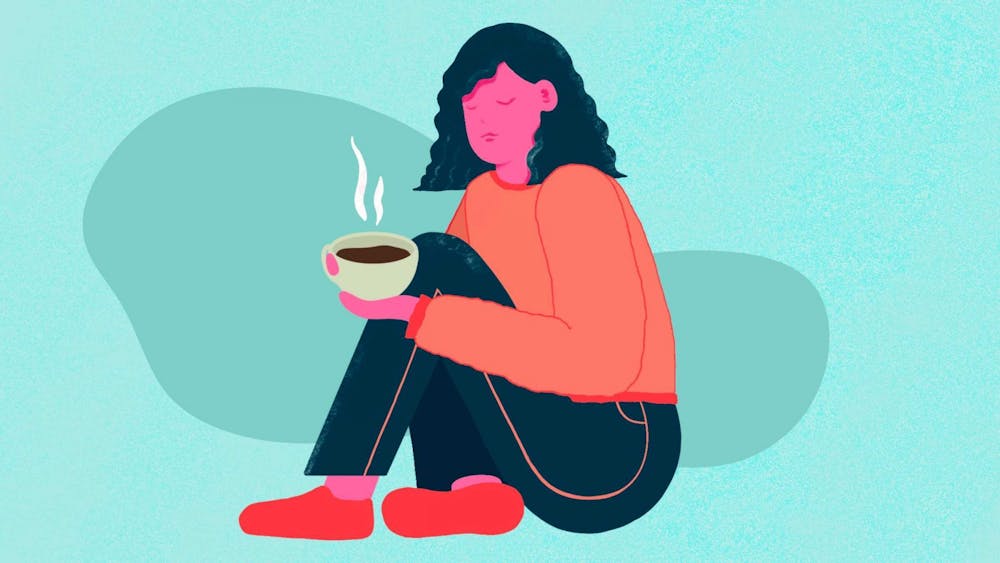If college has taught me anything, it’s how staunch my only child syndrome can be. I don’t mean in the way that makes you terrible at sharing, maladjusted or totally awkward around others.
I’m just particular.
Unfortunately, being particular, hypersensitive and non-confrontational is a dangerous mix when living with others — especially if they’re more carefree and less considerate of how their actions might affect others. My occasional small acts of kindness or picking up extra chores might go unnoticed, causing me to resent them. Are my expectations too high?
Sometimes, I can’t help but look around and see only unwashed dishes, overflowing trash cans and a barren wasteland of ingredients where groceries are supposed to be. What’s worse is when it’s not even my turn to perform these tasks.
Many mornings, I wake up and think to myself “How can they not know this needs to be done?” or “Why don’t they realize how much this bothers me?” But if I haven’t told them then it’s my expectations that are the problem, not their inaction.
Though common in addiction recovery programs, the sentiment “expectations are premeditated resentments” is applicable to various other contexts. By expecting friends or roommates to behave the way you want them to simply because you willed it internally is unrealistic and can be detrimental to your overall happiness and contentment.
Even though I understand purchasing something at the grocery store just because my roommate likes it or making extra leftovers so she doesn’t have to cook doesn’t necessarily warrant a parallel response, why do I expect one?
Psychologically, humans have a tendency to develop high expectations of others and tie our happiness to the fulfilment of said expectations, according to John A. Johnson, professor emeritus of psychology at Penn State.
This behavior stems from early childhood because young children often have difficulty distinguishing their subjective inner worlds from that of the outer world, causing them to believe conceptualizing an action will cause it to actually happen. This phenomenon is referred to as “magical thinking,” and though less influential, can last well into adulthood.
This magical thinking causes me to feel hurt by what I view as acts of thoughtlessness or indifference by the people around me. In reality, I’m refusing to see the true motivation behind these behaviors.
My friends or roommates aren’t doing things against me or because of me, but rather despite me. I’m just in the way of how they normally live their daily life. And they, too, are in the way of how I live mine.
Occasionally it feels as though I perform a plethora of actions that go widely unnoticed, making me resent the people I do them for. This resentment forced me to take a good, long look in the mirror to realize I’m often motivated by some small hope that someone else will do the same for me.
Because expressing myself verbally is not my strong suit, I perform small actions as cries for help or signals for what I truly need. But supposing others will understand my needs and allowing this self-imposition to be my only motivation behind my actions is inherently contradictory to true kindness. This kind of behavior is unfair and leaves my expectations of others all the more difficult to interpret.
I’m stuck somewhere between expecting others to operate exactly how I do and not wanting to be burdensome or nit-picky.
So this conundrum provides exactly two options: I can either tell people how I feel and how each of their actions affects me, or I can learn to simply lower my expectations.
Though I might see more immediate benefit from the former, psychologists suggest lowering expectations is a more direct pathway to happiness, or at the very least contentment. Having higher expectations may cultivate improvement but lead to disappointment, whereas having lower expectations can leave us feeling more satisfied by what others deliver.
With the COVID-19 pandemic especially, some are finding it hard to even make it one day to the next, leaving little to no room for selfless acts of kindness. And that’s okay.
I’m not saying you shouldn’t reach for the stars and expect mutually beneficial friendships and relationships, but I am saying it’s important to avoid holding others to an impossible standard because in reality, nobody asked me to buy those extra groceries or do that extra load of dishes. If anything, we all might find a little more peace in leaving chores for a couple of days.
Natalie Gabor (she/her) is a junior studying journalism with minors in business marketing and philosophy. She hopes to one day find a career that tops her brief stint as a Vans employee.






